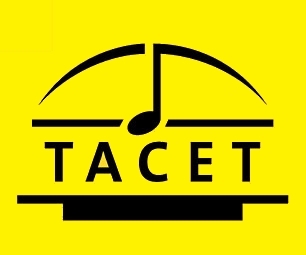"If you read the entry in Grove′s regarding 20th-century German composer Ernst Pepping--his output is described as being primarily "austere...Protestant sacred choral and organ music"--your reluctance to make an eager acquaintance with his work may be understandable. However, the reality is quite different, if this remarkable and intensely engaging program is any proof. This "song-cycle" for choir, drawing its texts from a wide array of poems by Goethe (27 in all), shows everything from Brahmsian lyricism, linear elegance, and artful word-setting (Selbstbetrug; Herbstgefühl; Die Nachtigall) to late-Romantic chromaticism (Heut und ewig) and the angular, anti-melodic, craggy dissonance born of mid-century fashion (Prometheus; Lied der Parzen). We′re also treated to several vivacious and highly rhythmic pieces (Beruf des Storchs; Warum leckst du dein Mäulchen). Sure, Pepping knows how to do "austere", but it′s in the context of a larger realm that includes fascinatingly disparate yet compatible works that reach into all corners of romantic style, from the early and traditional to the later extremes.
The history of this, Pepping′s secular choral masterpiece (which here receives its recorded premiere), is all tied up in the politics of Germany in 1949, the bicentennial year of Goethe′s birth, and suffice it to say that instead of a performance in Weimar, its premiere was in West Berlin. Here the first-rate Saxon Vocal Ensemble gives exemplary renditions of these challenging pieces that demand nothing less than intonational precision and turn-on-a-dime expressive ability. The listening also is challenging--but it′s well worth a focused hour, which is certain to lead you to many repeat visits if for no other reason than a need to come to terms with such highly original music, remarkable for its melodic/harmonic adroitness and in its exceptional immediacy and compactness of expression. The sound is ideal, and the liner notes give important details regarding the composer and the music′s origin and thematic sensibility. Yes, this is for serious choral fans--but others shouldn′t be shy. This is a real find--historically essential and a pleasure too!"
David Vernier
<< zurück
The history of this, Pepping′s secular choral masterpiece (which here receives its recorded premiere), is all tied up in the politics of Germany in 1949, the bicentennial year of Goethe′s birth, and suffice it to say that instead of a performance in Weimar, its premiere was in West Berlin. Here the first-rate Saxon Vocal Ensemble gives exemplary renditions of these challenging pieces that demand nothing less than intonational precision and turn-on-a-dime expressive ability. The listening also is challenging--but it′s well worth a focused hour, which is certain to lead you to many repeat visits if for no other reason than a need to come to terms with such highly original music, remarkable for its melodic/harmonic adroitness and in its exceptional immediacy and compactness of expression. The sound is ideal, and the liner notes give important details regarding the composer and the music′s origin and thematic sensibility. Yes, this is for serious choral fans--but others shouldn′t be shy. This is a real find--historically essential and a pleasure too!"
David Vernier
<< zurück
